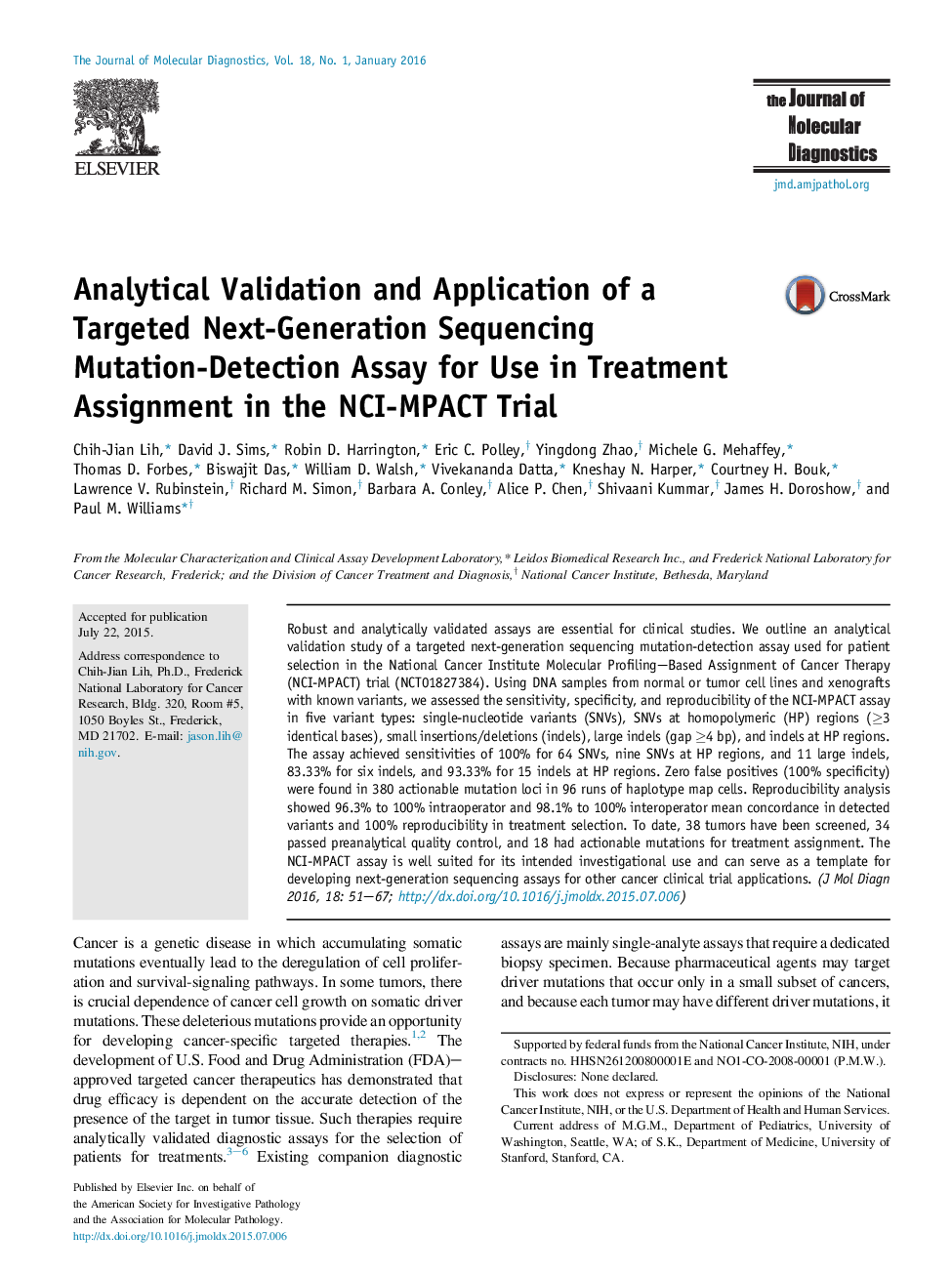| Article ID | Journal | Published Year | Pages | File Type |
|---|---|---|---|---|
| 3327683 | The Journal of Molecular Diagnostics | 2016 | 17 Pages |
Robust and analytically validated assays are essential for clinical studies. We outline an analytical validation study of a targeted next-generation sequencing mutation-detection assay used for patient selection in the National Cancer Institute Molecular Profiling–Based Assignment of Cancer Therapy (NCI-MPACT) trial (NCT01827384). Using DNA samples from normal or tumor cell lines and xenografts with known variants, we assessed the sensitivity, specificity, and reproducibility of the NCI-MPACT assay in five variant types: single-nucleotide variants (SNVs), SNVs at homopolymeric (HP) regions (≥3 identical bases), small insertions/deletions (indels), large indels (gap ≥4 bp), and indels at HP regions. The assay achieved sensitivities of 100% for 64 SNVs, nine SNVs at HP regions, and 11 large indels, 83.33% for six indels, and 93.33% for 15 indels at HP regions. Zero false positives (100% specificity) were found in 380 actionable mutation loci in 96 runs of haplotype map cells. Reproducibility analysis showed 96.3% to 100% intraoperator and 98.1% to 100% interoperator mean concordance in detected variants and 100% reproducibility in treatment selection. To date, 38 tumors have been screened, 34 passed preanalytical quality control, and 18 had actionable mutations for treatment assignment. The NCI-MPACT assay is well suited for its intended investigational use and can serve as a template for developing next-generation sequencing assays for other cancer clinical trial applications.
